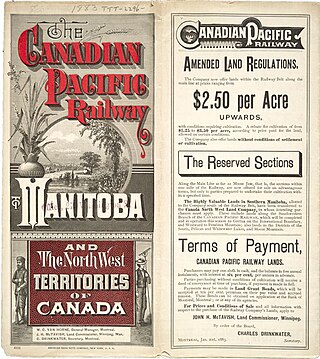| Weir v Secretary of State for Transport | |
|---|---|
 | |
| Court | High Court |
| Citation(s) | [2005] EWHC 2192 (Ch) |
| Keywords | |
| Rail | |
Weir v Secretary of State for Transport [2005] EWHC 2192 (Ch) is a UK enterprise law case, concerning railways in the UK.
| Weir v Secretary of State for Transport | |
|---|---|
 | |
| Court | High Court |
| Citation(s) | [2005] EWHC 2192 (Ch) |
| Keywords | |
| Rail | |
Weir v Secretary of State for Transport [2005] EWHC 2192 (Ch) is a UK enterprise law case, concerning railways in the UK.
Weir and 48,000 other shareholders of Railtrack claimed that Stephen Byers’ decision to force Railtrack into administration amounted to the tort of misfeasance in public office and a breach of the Human Rights Act 1998, based upon the theory that their property had been deprived. The shareholders collectively managed to raise £4m together to fight the case. They argued their property was expropriated without adequate compensation.
Lindsay J rejected the claims.
| | This section needs expansion. You can help by adding to it. (February 2018) |
Railtrack was a group of companies that owned the track, signalling, tunnels, bridges, level crossings and all but a handful of the stations of the British railway system from 1994 until 2002. It was created as part of the privatisation of British Rail, listed on the London Stock Exchange, and was a constituent of the FTSE 100 Index. In 2002, after experiencing major financial difficulty, most of Railtrack's operations were transferred to the state-controlled non-profit company Network Rail. The remainder of Railtrack was renamed RT Group plc and eventually dissolved on 22 June 2010.

Network Rail Limited is the owner and infrastructure manager of most of the railway network in Great Britain. Network Rail is an "arm's length" public body of the Department for Transport with no shareholders, which reinvests its income in the railways.

A joint-stock company is a business entity in which shares of the company's stock can be bought and sold by shareholders. Each shareholder owns company stock in proportion, evidenced by their shares. Shareholders are able to transfer their shares to others without any effects to the continued existence of the company.

Incorporation is the formation of a new corporation. The corporation may be a business, a nonprofit organization, sports club, or a local government of a new city or town.

Liquidation is the process in accounting by which a company is brought to an end in Canada, United Kingdom, United States, Ireland, Australia, New Zealand, Italy, and many other countries. The assets and property of the company are redistributed. Liquidation is also sometimes referred to as winding-up or dissolution, although dissolution technically refers to the last stage of liquidation. The process of liquidation also arises when customs, an authority or agency in a country responsible for collecting and safeguarding customs duties, determines the final computation or ascertainment of the duties or drawback accruing on an entry.

Corporate law is the body of law governing the rights, relations, and conduct of persons, companies, organizations and businesses. The term refers to the legal practice of law relating to corporations, or to the theory of corporations. Corporate law often describes the law relating to matters which derive directly from the life-cycle of a corporation. It thus encompasses the formation, funding, governance, and death of a corporation.

Limited liability is a legal status in which a person's financial liability is limited to a fixed sum, most commonly the value of a person's investment in a corporation, company or partnership. If a company that provides limited liability to its investors is sued, then the claimants are generally entitled to collect only against the assets of the company, not the assets of its shareholders or other investors. A shareholder in a corporation or limited liability company is not personally liable for any of the debts of the company, other than for the amount already invested in the company and for any unpaid amount on the shares in the company, if any, except under special and rare circumstances permitting "piercing the corporate veil." The same is true for the members of a limited liability partnership and the limited partners in a limited partnership. By contrast, sole proprietors and partners in general partnerships are each liable for all the debts of the business.
In sociology and anthropology, an action group or task group is a group of people joined temporarily to accomplish some task or take part in some organized collective action.
Piercing the corporate veil or lifting the corporate veil is a legal decision to treat the rights or duties of a corporation as the rights or liabilities of its shareholders. Usually a corporation is treated as a separate legal person, which is solely responsible for the debts it incurs and the sole beneficiary of the credit it is owed. Common law countries usually uphold this principle of separate personhood, but in exceptional situations may "pierce" or "lift" the corporate veil.

London and Continental Railways (LCR) is a property development company owned by the Government of the United Kingdom for developing former railway land. The company was originally established in 1994 as a private consortium to own European Passenger Services and build the Channel Tunnel Rail Link (CTRL) under a contract agreed with the government.
Sir Thomas Philip Winsor is a British arbitrator and mediator, lawyer, consultant and economic regulatory professional.
Misfeasance in public office is a cause of action in the civil courts of England and Wales and certain Commonwealth countries. It is an action against the holder of a public office, alleging in essence that the office-holder has misused or abused their power. The tort can be traced back to 1703 when Chief Justice Sir John Holt decided that a landowner could sue a police constable who deprived him of his right to vote. The tort was revived in 1985 when it was used so that French turkey producers could sue the Ministry of Agriculture over a dispute that harmed their sales.

The United Kingdom company law regulates corporations formed under the Companies Act 2006. Also governed by the Insolvency Act 1986, the UK Corporate Governance Code, European Union Directives and court cases, the company is the primary legal vehicle to organise and run business. Tracing their modern history to the late Industrial Revolution, public companies now employ more people and generate more of wealth in the United Kingdom economy than any other form of organisation. The United Kingdom was the first country to draft modern corporation statutes, where through a simple registration procedure any investors could incorporate, limit liability to their commercial creditors in the event of business insolvency, and where management was delegated to a centralised board of directors. An influential model within Europe, the Commonwealth and as an international standard setter, UK law has always given people broad freedom to design the internal company rules, so long as the mandatory minimum rights of investors under its legislation are complied with.

United Kingdom insolvency law regulates companies in the United Kingdom which are unable to repay their debts. While UK bankruptcy law concerns the rules for natural persons, the term insolvency is generally used for companies formed under the Companies Act 2006. "Insolvency" means being unable to pay debts. Since the Cork Report of 1982, the modern policy of UK insolvency law has been to attempt to rescue a company that is in difficulty, to minimise losses and fairly distribute the burdens between the community, employees, creditors and other stakeholders that result from enterprise failure. If a company cannot be saved it is "liquidated", so that the assets are sold off to repay creditors according to their priority. The main sources of law include the Insolvency Act 1986, the Insolvency Rules 1986, the Company Directors Disqualification Act 1986, the Employment Rights Act 1996 Part XII, the Insolvency Regulation (EC) 1346/2000 and case law. Numerous other Acts, statutory instruments and cases relating to labour, banking, property and conflicts of laws also shape the subject.

United Kingdom enterprise law concerns the ownership and regulation of organisations producing goods and services in the UK, European and international economy. Private enterprises are usually incorporated under the Companies Act 2006, regulated by company law, competition law, and insolvency law, while almost one third of the workforce and half of the UK economy is in enterprises subject to special regulation. Enterprise law mediates the rights and duties of investors, workers, consumers and the public to ensure efficient production, and deliver services that UK and international law sees as universal human rights. Labour, company, competition and insolvency law create general rights for stakeholders, and set a basic framework for enterprise governance, but rules of governance, competition and insolvency are altered in specific enterprises to uphold the public interest, as well as civil and social rights. Universities and schools have traditionally been publicly established, and socially regulated, to ensure universal education. The National Health Service was set up in 1946 to provide everyone with free health care, regardless of class or income, paid for by progressive taxation. The UK government controls monetary policy and regulates private banking through the publicly owned Bank of England, to complement its fiscal policy. Taxation and spending composes nearly half of total economic activity, but this has diminished since 1979.

Cook v Deeks [1916] UKPC 10 is a Canadian company law case, relevant also for UK company law, concerning the illegitimate diversion of a corporate opportunity. It was decided by the Judicial Committee of the Privy Council, at that time the court of last resort within the British Empire, on appeal from the Appellate Division of the Supreme Court of Ontario, Canada.

United States corporate law regulates the governance, finance and power of corporations in US law. Every state and territory has its own basic corporate code, while federal law creates minimum standards for trade in company shares and governance rights, found mostly in the Securities Act of 1933 and the Securities and Exchange Act of 1934, as amended by laws like the Sarbanes–Oxley Act of 2002 and the Dodd–Frank Wall Street Reform and Consumer Protection Act. The US Constitution was interpreted by the US Supreme Court to allow corporations to incorporate in the state of their choice, regardless of where their headquarters are. Over the 20th century, most major corporations incorporated under the Delaware General Corporation Law, which offered lower corporate taxes, fewer shareholder rights against directors, and developed a specialized court and legal profession. Nevada has attempted to do the same. Twenty-four states follow the Model Business Corporation Act, while New York and California are important due to their size.

German company law (Gesellschaftsrecht) is an influential legal regime for companies in Germany. The primary form of company is the public company or Aktiengesellschaft (AG). A private company with limited liability is known as a Gesellschaft mit beschränkter Haftung (GmbH). A partnership is called a Kommanditgesellschaft (KG).

Case Concerning Barcelona Traction, Light, and Power Company, Ltd [1970] ICJ 1 is a public international law case, concerning the abuse of rights.